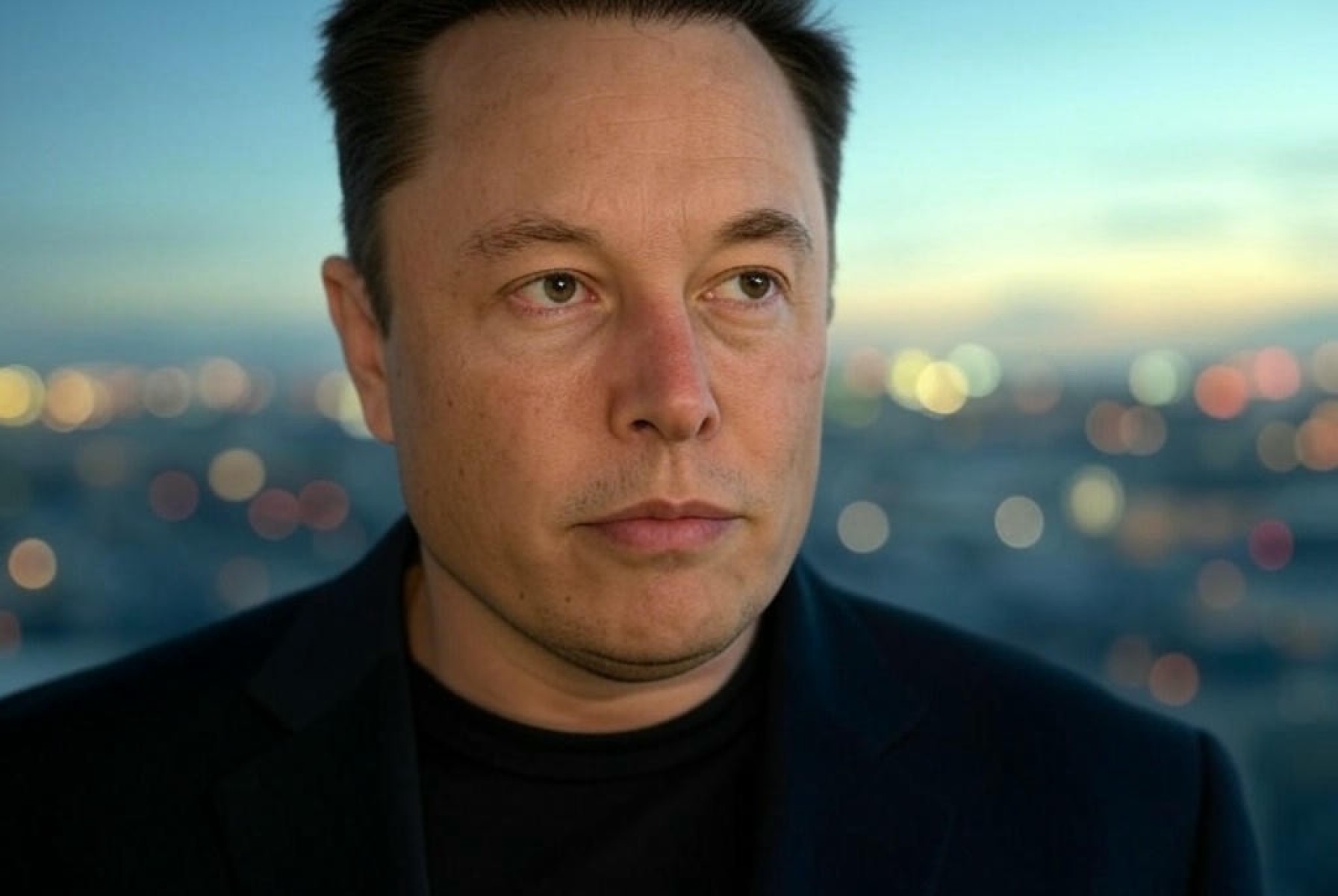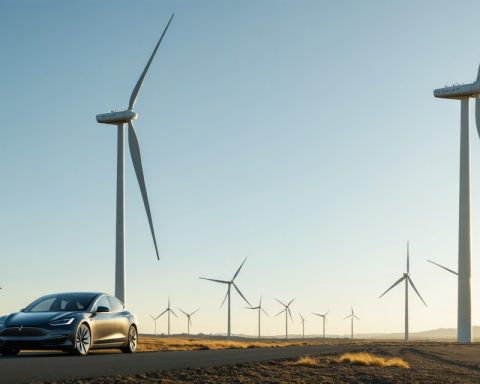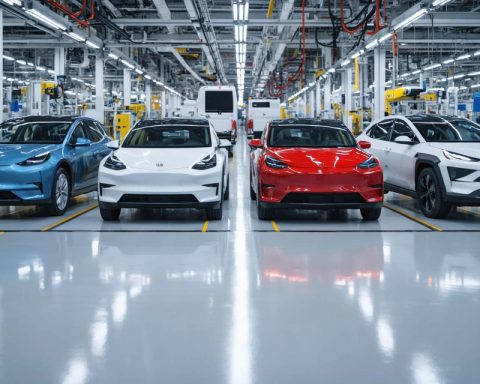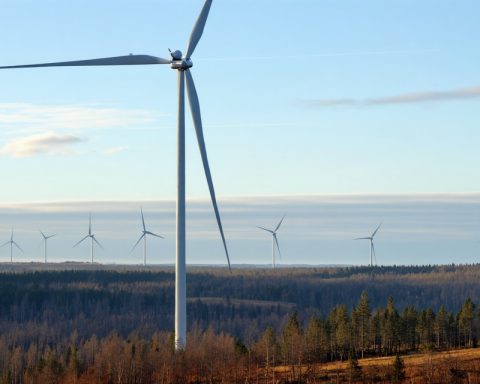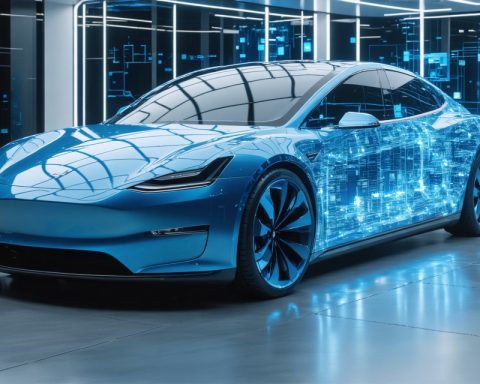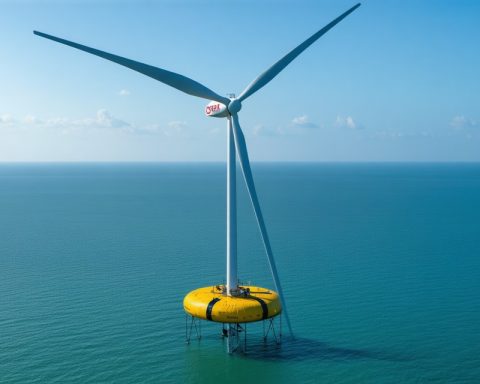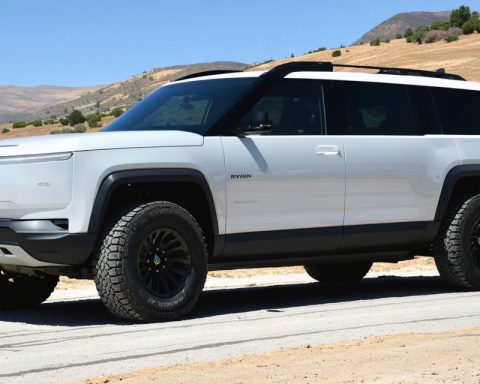- Elon Musk’s polarizing actions have led to protests against Tesla and a significant drop in its market value.
- Despite challenges, Musk’s controversies could make the electric vehicle (EV) market more accessible and democratized.
- Tesla, key in mainstreaming EVs, initially targeted affluent men with luxury, eco-friendly branding.
- There’s increasing demand for affordable EV options, with significant competition from economical Chinese manufacturers.
- The message focus should be on long-term savings, sustainability, and reliability to reach broader audiences.
- Personal advocacy and real-world testimonials are crucial in promoting EV adoption and experience sharing.
- Musk’s antics present an opportunity for Tesla and the industry to reshape EV messaging for inclusive mass appeal.
A storm brews around Elon Musk as his provocative political stances and polarizing actions perpetuate a mass departure from X, his revived social media platform, and ignite protests against his iconic company, Tesla. Showcasing the profound effect of Musk’s persona on his business ventures, Tesla dealerships across the globe face peaceful protests but also acts of vandalism, while plummeting sales underscore the unease rippling through potential customers. In a short span of two months, Tesla’s market value nosedived nearly in half.
Yet, amidst the turbulence, a fascinating paradox emerges: Musk’s controversies may inadvertently democratize the electric vehicle (EV) market. History remembers 2010 as the year Tesla charted a new course, becoming the first American automaker since Ford in 1956 to go public, catalyzing the evolution of fully electric cars from niche products to mainstream marvels. That year, the launch of the Nissan Leaf catered more to city-bound commuters than cross-country dreamers, while major carmakers hesitated, and China’s blossoming EV industry remained in its infancy.
Fast forward to 2023 and the world witnesses an astonishing rise from less than 60,000 EVs on the road in 2013 to almost the same number being sold daily a decade later. Tesla, alongside early adopters like the Nissan Leaf, was instrumental in transforming electric cars into a legitimate alternative and a market force formidable enough to draw traditional auto giants and governmental backing.
Tesla’s initial strategy: craft electric cars for an elite audience, intertwining environmentally conscious branding with exotic hi-tech allure, aimed primarily at affluent men. Research underscores this demographic dominance, revealing how wealth, combined with gender, cultivates early adoption, especially within social circles that reinforce these choices.
The juxtaposition, however, lies in the mass market’s cry for affordability and environmental motives. While Tesla did reduce prices globally, the brand’s strong association with Silicon Valley’s exclusivity persists, keeping entry-level costs around a staggering £40,000 in the UK. Yet, the EV revolution marches on, buoyed by an array of affordable models and a burgeoning second-hand market reflecting a broad demand shift highlighted in the latest International Energy Agency report.
Amidst fierce competition, particularly from budget-friendly Chinese manufacturers like BYD, the narrative must evolve. It’s a call to pivot from space-age aspiration to grounded practicality, underscoring not just the eco-friendly edge but also the economic advantage of EV ownership. Messaging that resonates needs to champion long-term savings, reliability, and sustainability, and it needs to come from honest, trustworthy sources.
The transformative strength of personal advocacy cannot be overstated. Real-world testimonials from family, friends, and community embody the lived experiences of EV owners who narrate their day-to-day juxtapositions of parking quandaries and charging tips, acting as inadvertent EV evangelists. Further, the notion of shared mobility within communities could amplify this evolution, achieving a substantial environmental impact by curtailing car numbers alongside the fuel shift.
Musk’s controversial theatrics, while bruising Tesla’s avant-garde image, underscore a pivotal opportunity: the chance to refine electric vehicle messaging for inclusive, equitable mass appeal. As global adoption of electric personal mobility accelerates, Tesla’s tribulations offer the broader industry a moment to craft a narrative steeped in diversity, rather than division — ensuring the electric heartbeat of automotive innovation powers forward.
Is Elon Musk’s Controversy the Catalyst for an Electric Vehicle Revolution?
The Impact of Elon Musk’s Persona on Tesla
Elon Musk, known for his provocative political engagements and outspoken nature, has significantly impacted Tesla and its ventures. His controversial standpoints have prompted a noticeable backlash, culminating in a mass departure from X (Twitter’s rebranded identity) and protests against Tesla. This unrest mirrors the profound influence Musk’s persona exerts on consumer perceptions and market dynamics. Tesla’s dealerships have faced peaceful protests and acts of vandalism, and Tesla’s market value has almost halved within a span of two months, indicating a growing unease among potential customers.
How Elon Musk’s Actions Could Democratize the EV Market
Despite the turbulence surrounding Musk, there’s a potential silver lining: democratizing the electric vehicle (EV) market. Tesla’s journey began in 2010, pushing electric cars from niche to mainstream. By 2023, the market saw an exponential increase in consumer adoption, with nearly 60,000 EVs sold daily. Tesla, alongside pioneers like Nissan with its Leaf, played a pivotal role in crafting electric cars as legitimate market alternatives. However, this shift calls for focusing not just on innovation, but on affordability and broader market reach.
The Call for Affordability in EVs
Tesla’s early strategy targeted affluent individuals, merging eco-conscious branding with luxury. This approach, while initially successful, hasn’t fully addressed the mass market’s affordability concerns. In the UK, entry-level Tesla models still hover around £40,000, a price point that many consumers find prohibitive. Nonetheless, the EV landscape is diversifying, with budget-friendly alternatives from Chinese manufacturers like BYD entering the scene, pushing Tesla to reconsider its market strategy.
Fierce Competition and the Changing Narrative
Competition from countries like China is fierce. These automakers can produce affordable EVs, which appeals to a broader base. It’s essential for Tesla and others to adjust their messaging to highlight not just the sustainability aspects but also the long-term economic benefits of EV ownership. Reduction in fuel costs, fewer maintenance requirements, and incentives contribute to the overall affordability of EVs over traditional cars.
Real-World Use Cases and Community Advocacy
Real-world experiences play a critical role in the adoption of electric vehicles. Testimonials from current EV owners provide invaluable insights into daily living with an electric car. Owners share charging tips, parking solutions, and narrate personal stories, becoming organic advocates for EV adoption. Furthermore, community-level car sharing amplifies these benefits, allowing collective access and reducing the environmental footprint.
Addressing the Pressing Questions
How to Choose an EV in 2023?
– Assess Your Driving Needs: Analyze daily mileage and charging availability.
– Budget Matters: Explore new and second-hand markets; consider incentives and long-term savings.
– Consider Range and Charging Speed: Longer range and faster charging can make a substantial difference for longer commutes.
Are EVs Environmentally Sustainable?
– Yes, EVs offer reduced emissions and running costs. The sustainability of battery production and recycling are ongoing challenges that manufacturers are addressing through innovation and policy.
Predictions and Recommendations
It’s likely that Musk’s controversies will continue to steer public conversation on EVs. However, Tesla and the broader industry have the opportunity to leverage this attention towards crafting a more inclusive narrative for EV adoption. By focusing on affordability, sustainability, and community-driven advocacy, Tesla can reposition itself to align with the evolving demands of the global market.
Quick Tips for Prospective EV Buyers:
– Look out for government incentives and rebates, which can significantly reduce upfront costs.
– Calculate total ownership cost rather than just the buying price.
– Stay informed about local and distant charging infrastructure developments.
For more information on Tesla and its innovations, visit the Tesla website.
